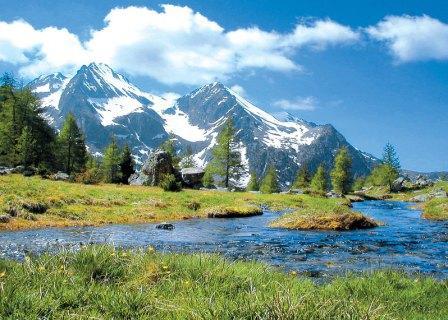A long-standing protest against the construction of a high-speed rail link through the Italian Alps continued on Wednesday after the presentation of a report backing the feasibility of the project.
Some 200 protesters gathered outside municipal offices in the northern city of Turin where European Commission official Loyola De Palacio was set to present the report.
The 160-page document was compiled by five experts who have spent several months researching the environmental and health implications of the plan to build a 53-kilometre tunnel through the Susa Valley in the Western Italian Alps.
The link will eventually be incorporated into a rail line running from Turin to Lyon in France.
The independent experts appointed by De Palacio, who is the EC's coordinator for the Turin-Lyon project, were asked to examine studies carried out by the Lyon Turin Ferroviare (LTF), the Italo-French company tasked with building the line.
According to the EC on Tuesday, the panel concluded that the LTF studies into the Alpine link's environmental, health and traffic impact were thorough and "sound", and should ease the concerns of residents.
The protesters, who are mainly Susa Valley residents, have blocked work on the link, saying it will create an environmental disaster and destroy the area's natural beauty. They stress that the tunnel will take at least ten years to complete and argue that the money would be better spent on boosting existing transport infrastructure in the region.
They also say they fear for their health given that green groups claim the mountains to be drilled through contain both uranium and asbestos. But the LTF argues that the line will actually reduce pollution by cutting the amount of goods transported by road.
It also says that new technology will be able to deal safely and effectively with any health risks caused by the potential asbestos or uranium. The independent experts said the LTF had "done its job in a serious way, with respect for existing norms and has
replied satisfactorily to the critical points with in-depth studies on tricky aspects such as the asbestos issue," they said.
European Transport Commissioner Jacques Barrot said on Tuesday that the report was an "excellent basis for resuming talks with Susa Valley residents". "It's important that the local population have access to transparent and impartial information," he added.
"This report allows them to judge for themselves in an objective way the validity of the project and the measures that will be taken with regard to the environment and control of potential health risks," Barrot said.
But a spokesman for Susa Valley residents demanded on Wednesday that their own experts be allowed to examine the LTF studies, accusing the EC-appointed panel of bias. One of the protest leaders, Alberto Perino, said that "this EC report was a foregone conclusion... we will never allow this link to be built".
"The project may be technically perfect but it will kill the valley," the protesters said.
Supporters of the project, including the EC, highlight the economic benefits of the link, which will form part of a pan-European transport system connecting Western and Eastern Europe with a super-modern freight line stretching from Kiev in Ukraine to Barcelona in Spain.
Politicians on both sides of the political divide say it is vital that Italy remain part of this rail system. But the Greens and the Communist Refoundation Party (PRC), who are part of the incoming governing coalition led by centre-left chief Romano Prodi, are both against the project.
The two parties expressed doubts on Wednesday over the independence of the EC report.
Demonstrations against the Susa Valley link have in the past turned violent, with clashes between protesters and the police.




